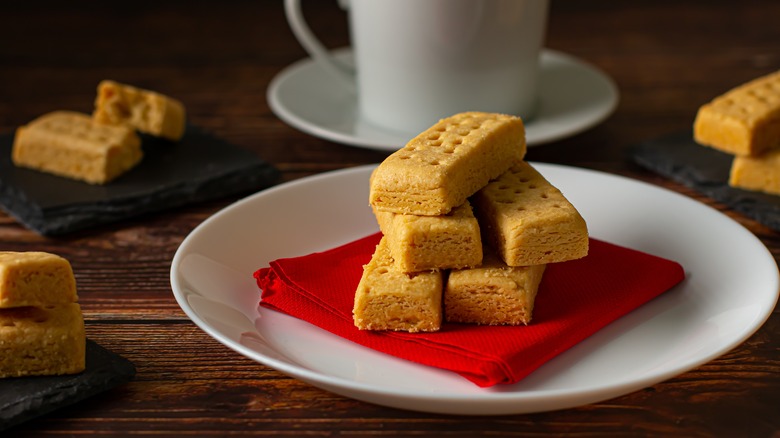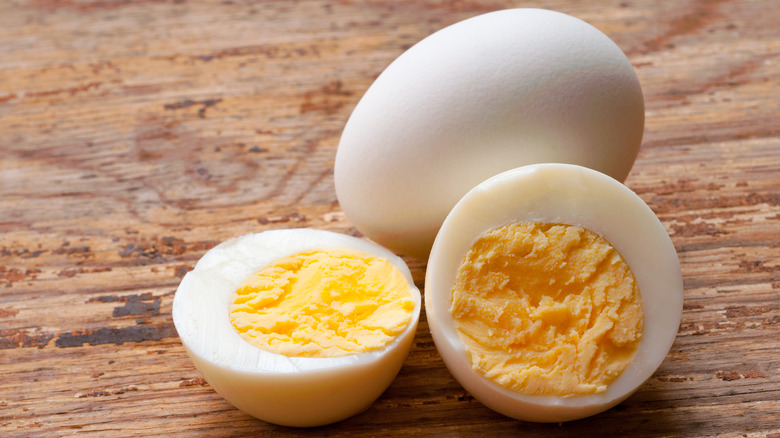For Ultra Tender Shortbread Try Adding Hard-Boiled Egg Yolk
Among all the cookie recipes out there — from chewy red velvet to loaded chocolate chunk to spicy molasses gingersnap – there's just something about buttery, melt-in-your-mouth shortbread cookies. About as versatile as a cookie can get, shortbread is wonderful all on its own but also takes well to a vast array of flavors, from chocolate-tahini ganache to festive red and green Christmas sprinkles. The perfect companion to a hot mug of coffee or tea, it's pretty hard to go wrong with a fresh-baked batch of shortbread — as long as, of course, those shortbread don't turn out tough.
Since its flavor is quite neutral, the appeal of shortbread definitely lies in that sandy texture brought to the party by all that butter — and by not overworking the dough. When beaten too long or vigorously in the mixer, Serious Eats notes, shortbread dough will develop gluten and turn out crumbly as opposed to tender. But in addition to being judicious with the mixing, adding hard-boiled egg yolk into your shortbread dough — yes, you read that right — can help turn out cookies that melt away on the palate.
The fat in egg yolks helps protect against the development of gluten
The perfect shortbread cookies seem to dissolve on the tongue with almost no chewing required. That sandy texture is what is so cherished about shortbread, but all too often, the cookies seem to turn out dry and crumbly instead of melt-in-your-mouth. With all that butter, lack of fat is not the problem, but rather, overworking the dough in the mixer; According to Allrecipes, that's what leads to the development of gluten, which makes for a great mouthfeel in bread, but not so much in cookies.
Allrecipes explains that two proteins in wheat flour, gliadin and glutenin, come together to form gluten when doughs are kneaded. To prevent gluten's development in shortbread, you'll want to mix your dough only until it just comes together, according to Serious Eats. But as extra insurance, you can also pass the yolks of hard-boiled eggs through a fine sieve, creating a type of fluffy "flour." Mixed into the dough, the fat-rich particles of the yolk act as a physical barrier between gliadin and glutenin, Allrecipes explains, ensuring the soft, tender outcome shortbread lovers seek.
Per batch of shortbread, you'll want to sieve two hard-boiled yolks, Allrecipes notes. And the technique applies to other buttery baked goods, as well, writes Bon Appétit: Try it out when making scones, biscuits, and cake doughnuts, too.

